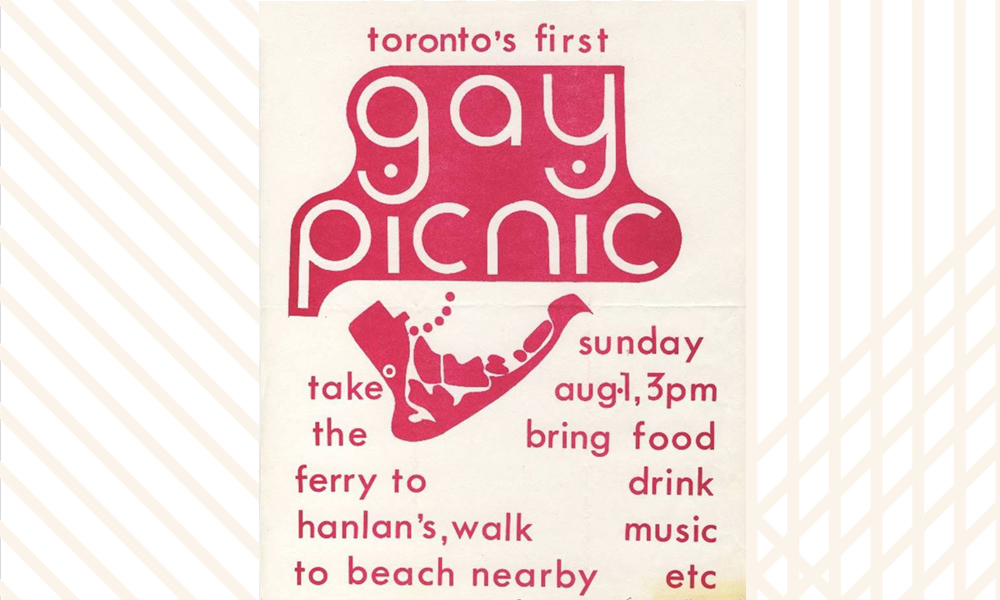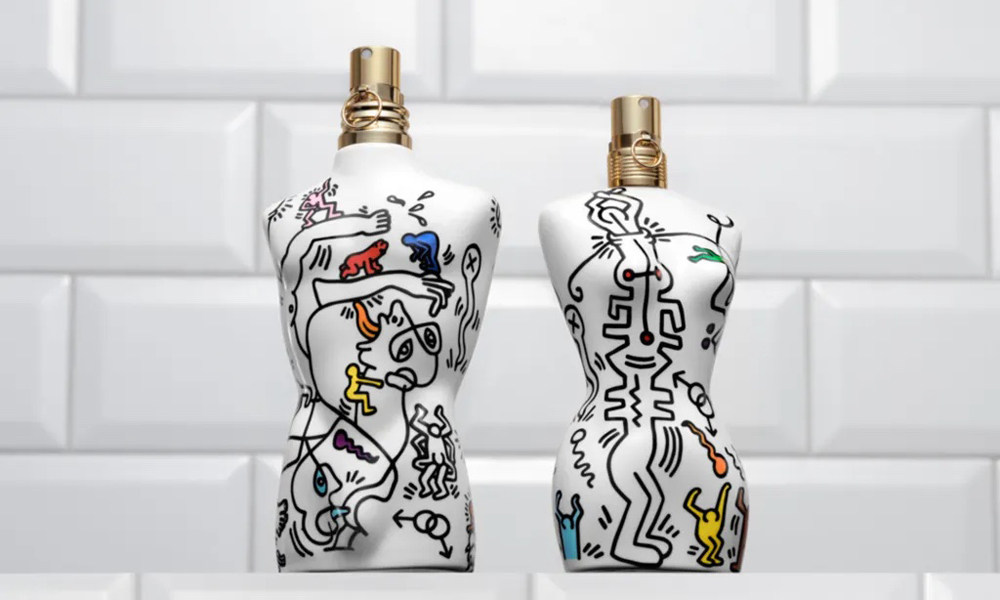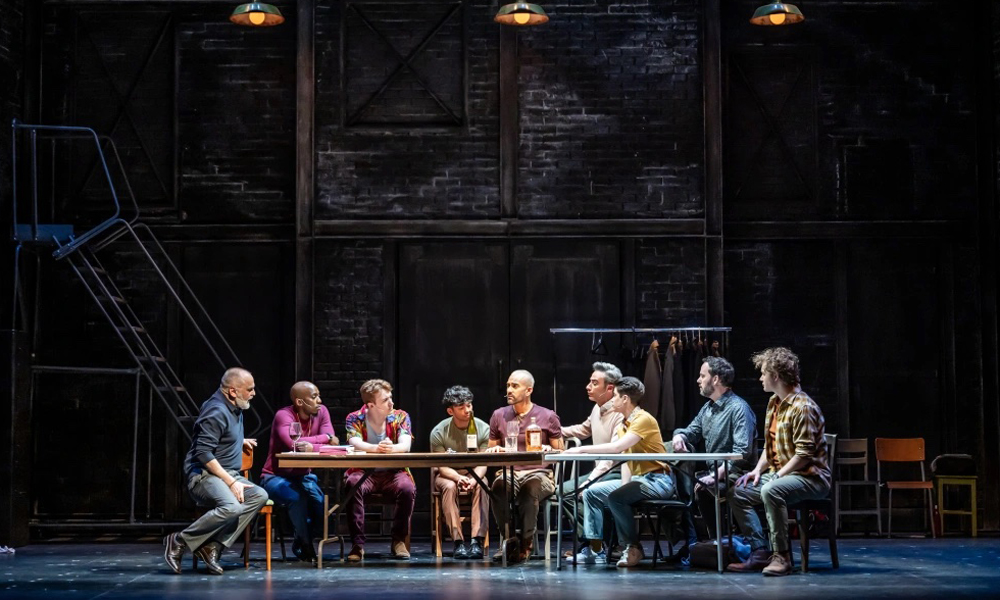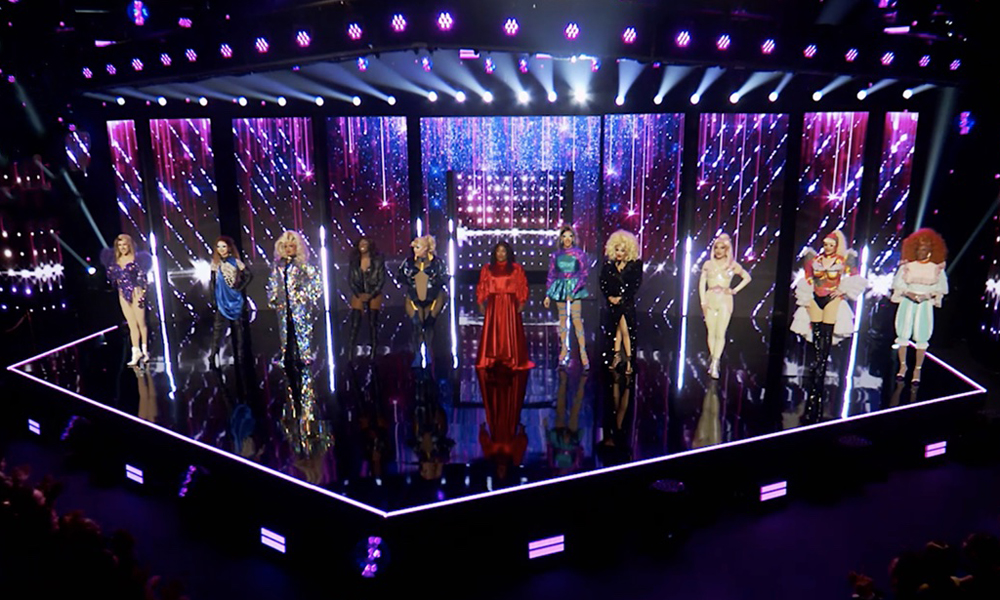Know your history, Toronto…or at least the highlights…
1971
Toronto’s first “Gay Day Picnic” is held on the beach at Hanlan’s Point on Sunday, August 1. The groundbreaking event was organized by Toronto Gay Action, the Community Homophile Association of Toronto and the University of Toronto Homophile Association, with around 300 people from neighbouring cities as far away as New York City and Detroit attending to show their support.
1972
On July 9, the second annual Gay Day Picnic is held as part of a series of events for the first Gay Pride Week. The week includes a festival, film night, Pride Dance, rally and march to Queen’s Park.
1973
Pride Week is held from August 17-26. The organizers ask Mayor David Crombie to recognize the event, but are turned down. Permission to march down Yonge Street is also denied.
1974
Pride Week is held from August 17-24 and includes another Pride Picnic on Ward’s Island, a theatre night and a church service at Metropolitan Community Church. More than 100 people march from Allan Gardens to Queen’s Park in an effort to pressure legislators to add sexual orientation to the Ontario Human Rights Code.
1978
After no organized events were held from 1975 to 1977, GAYDAYS: In Celebration of Lesbians and Gay Men is held from August 24-27. This is the first year that Pride Day is celebrated at Cawthra Park, with ceremonies on the steps of The 519 Community Centre and a beer garden in the park.
1981
After no organized events were held in 1979 and 1980, Lesbian and Gay Pride Day Toronto is legally incorporated and 1,500 people celebrate Pride Day on Sunday, June 28 at Grange Park. Just months earlier, on February 5, Metro Toronto Police had raided various bathhouses as part of “Operation Soap,” arresting 306 men.… In spite of the politically charged atmosphere, Lesbian and Gay Pride Day is billed as a time to relax and celebrate, and as “an afternoon of fun and frolic.”
1984
After previous Pride events at Grange Park (1981 and 1982) and King’s College Circle (1983), the annual festival makes a move. For the first time, Church Street – the heart of Toronto’s queer village – is closed and people dance in the street.
1985
Mayor Art Eggleton refuses to proclaim Lesbian & Gay Pride Week – the theme of which, ironically, is “Coming Together.” Eggleton will become Toronto’s longest-serving mayor (from 1980 to 1991), and through his entire tenure he will refuse to proclaim Lesbian and Gay Pride Day.
1991
Toronto City Council proclaims Pride Day for the first time, and Councillor Jack Layton reads the proclamation at the opening ceremony. Eggleton refuses to attend.
1992
June Rowlands becomes the first mayor to sign a Pride Day proclamation, though she does not attend the actual parade.
1995
Barbara Hall becomes the first mayor in Toronto’s history to not only speak on the Pride stages, but also to attend and walk in the parade.
1996
The first-ever Dyke March is held on Saturday, June 29, and it has a turnout of 5,000 people – police had projected an attendance of 50.
1998
After initial reservations, Toronto’s new “mega-mayor” Mel Lastman participates in the annual Pride Parade. He ends up having a fantastic time, riding on a fire truck and getting soaked by revellers with power water guns.
2001
For the first time, the City’s Official Proclamation of Pride Week includes a mention of bisexuals, transsexuals and transgendered persons.
2009
The First Trans March is held after Karah Mathiason organizes the event. It is not recognized by Pride Toronto as an officially programmed event but is supported by the group.
2014
Toronto hosts WorldPride 2014, the first to be held in North America and the largest event of its kind.
2016
Toronto Pride celebrations take over the city when the event becomes one month long. On Sunday, July 3, Black Lives Matter brings the Pride parade to a standstill to force the annual celebration of LGBTQ equality to answer for its “anti-blackness.”
2020
Pride Toronto cancels its full in-person festival weekend, which includes the Pride Parade, the Dyke March and the Trans March, due to the coronavirus pandemic. Virtual events, parties, performances and seminars are held throughout the month instead.







POST A COMMENT